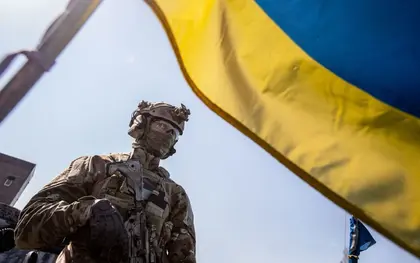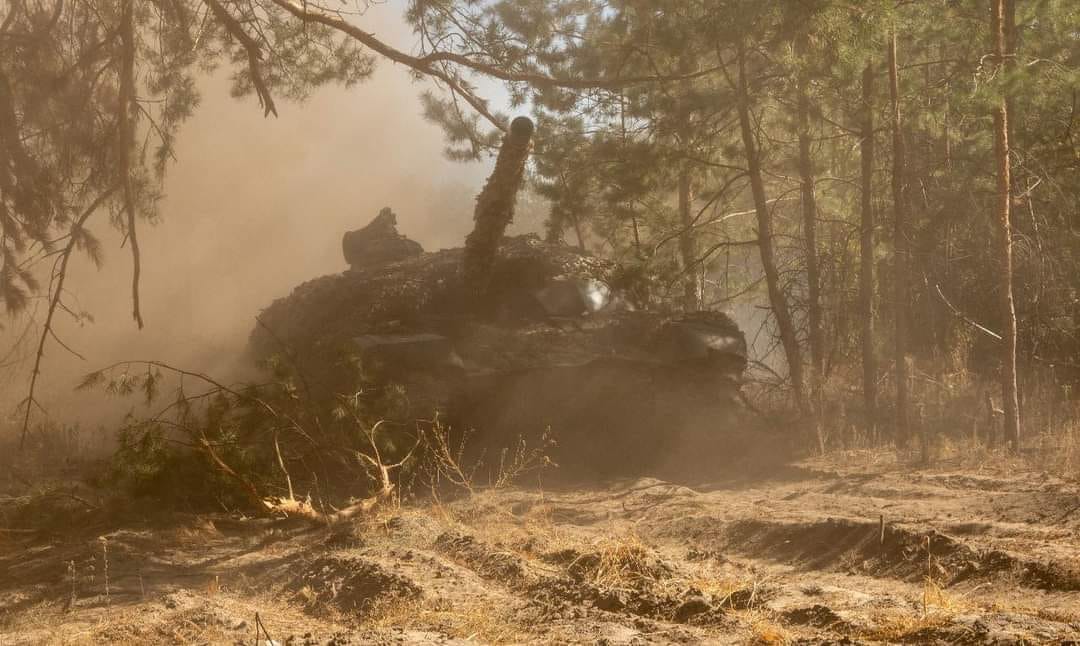Much has been said about the fact that the law on mobilization in force at the time of the outbreak of war was outdated and the military registration system was ineffective. Although experts were divided on the new draft law No. 10449 on mobilization, the issue of its adoption was vital, given the current external and internal factors. Ukraine must stand up to the aggressor, and for this it needs not only weapons but also people.
Mobilization – on the military track
JOIN US ON TELEGRAM
Follow our coverage of the war on the @Kyivpost_official.
The involvement of defenders in the defense of Ukraine has highlighted a number of problems in this process.
Firstly, the legislation on mobilization, which had not been updated for years, had a rather weak correlation with the challenges of wartime. Second, the military registration system in Ukraine was far from perfect. Therefore, the emergence of a new mobilization law was a requirement of the times.
The adopted law is not perfect, it is a compromise, and has many problematic issues. However, observers agree that its adoption is overdue.
New law, main changes
On April 11, 2024, the Verkhovna Rada adopted Law No. 10449 on mobilization in general. The document comes into force on May 18, 2024.
The main innovations of the law relate to accounting and are intended to update the database of persons liable for military service, which, in turn, should answer the question of the overall personnel potential for the Ukrainian Defense Forces and overcome the practice of searching for people for the army on the streets.
Thus, in accordance with the main provisions of this law, within 60 days of its entry into force, all Ukrainian men aged 18 to 60 (including those abroad) will have to update their military registration data.

Ukraine Braces for Critical Winter Phase as Front Line May Shift 35 km Westward
The legislation introduces the concept of an electronic cabinet for persons liable for military service: every Ukrainian man of military age can voluntarily create one, and it will be used to communicate with the military system.
Men who are not registered with the military will not be able to obtain a passport or (in the case of those abroad) use consular services.
The law restricts the ability of “evaders” to work in the civil service and allows the TCR (Territorial Center for Recruitment) to initiate the revocation of their driver’s licenses through the court.
The adopted law confirms the right to defer mobilization for fathers with many children (except for those who owe child support), single fathers, adoptive fathers, and those citizens whose close relatives were killed or went missing while defending Ukraine.
Law enforcement officers, members of the Verkhovna Rada and no more than two of their assistants, heads of central executive authorities, and judges will be exempt from mobilization.
Full-time students at universities and vocational schools, as well as teachers who work at least three-quarters of the time, are not subject to military service.
Citizens with disabilities, those released from captivity, and young men under 25 can only be mobilized on a voluntary basis.
The law also stipulates that all those mobilized must undergo the necessary military training.
Demobilization and rotation
The main criticism of the new law from soldiers is the lack of provisions on demobilization and rotation, which was deferred to be included in a separate draft law.
However, the issue of rotations seems to be moving forward even without a law. In particular, in an interview at the end of March, the Commander-in-Chief of the Armed Forces of Ukraine, Oleksandr Syrsky, said that rotations of military units on the front line had already begun.
As for demobilization, there is a general opinion among legislators that such a term in the context of an ongoing war is inappropriate, so the new law will most likely regulate the dismissal of military personnel of the Defense Forces fighting.
Recruitment and mobilization
The law contains changes to military ranks, introduces the title of recruiter, and separately defines the rules for the operation of recruiting centers in Ukraine. Parliamentarians left in the law a clause on the protection of recruits for service in a specific unit.
Such an innovation is important against the backdrop of the development of the recruitment system and recruitment centers, where everyone can choose a military specialty and join the army on a voluntary basis. By the end of July 2024, 22 new recruitment centers are planned to open, bringing the total number of such centers to 32 across the country. The main goal is to increase the number of new contract soldiers to 4-5 thousand per month.
This practice is actively used. From the first months of the full-scale war, some units, such as the 3rd Assault Brigade, Da Vinci Wolves, Kraken Special Forces, etc. have been successfully recruiting. Last year, the Ministry of Defense also launched a recruitment program. And this year a new recruitment process and criteria for the Armed Forces was presented, which is carried out through recruitment centers and online.
More necessary than ever
The adopted law is not perfect, it is a compromise, and has many problematic issues. However, observers agree that its adoption in the third year of the war unleashed by Russia is overdue, and for several reasons.
First of all, the situation on the front line has long called for intensification of conscription.
The Ukrainian military, with many soldiers who have been fighting on the eastern front since 2014, also demanded increased mobilization.
Ultimately, the adoption of the law on mobilization turned into an element of a foreign policy game involving Ukraine, which is currently in dire need of financial and military assistance provided by its Western partners. Russian propagandists have been spreading a narrative in the West about the inexpediency of helping Ukraine, which is allegedly not even able to organize mobilization by law.
In this sense, the Rada’s adoption of the long-stalled law can be considered the fulfilment of the military’s request and the first step toward mobilizing the whole of Ukraine for the future victory in the war.
The views expressed in this opinion article are the author’s and not necessarily those of Kyiv Post.
You can also highlight the text and press Ctrl + Enter






